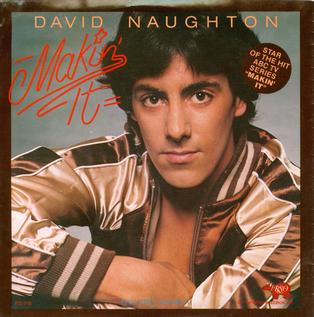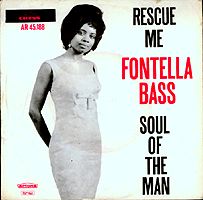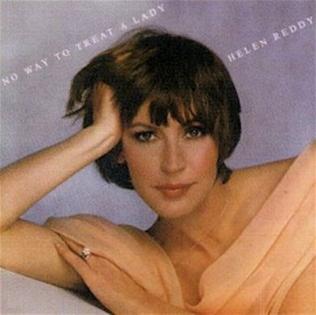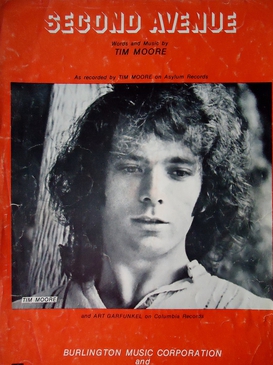
"Dark Lady" is a folk song recorded by American singer-actress Cher, and the title selection from her eleventh studio album, Dark Lady. Written and composed by John Robert "Johnny" Durrill and produced by Snuff Garrett, it was released as the album's first single in early 1974. The song became Cher's third solo U.S. number 1 hit on March 23, 1974.

"Then Came You" is a 1974 song recorded by American soul singer Dionne Warwick and American R&B group The Spinners. It was credited to Dionne Warwicke and the Spinners. The track was written by Sherman Marshall and Phillip T. Pugh, and produced by Thom Bell.

"Who's Crying Now" is a song by the American rock band Journey. It was written by Jonathan Cain and Steve Perry. It was released in 1981 as the first single from Escape and reached No. 4 on both the Billboard Hot 100 and the Mainstream Rock Tracks charts. The song charted at No. 46 in the UK Singles Chart, and was the band's highest charting single in the UK until "Don't Stop Believin'" incurred a resurgence in UK popularity in 2009.

"Makin' It" is a 1979 disco song performed by David Naughton, his only musical release. It was the theme song for the television series Makin' It, in which Naughton starred. It was written by the successful songwriting team Freddie Perren and Dino Fekaris. It was released as both a 7-inch single and a 12-inch single, with an instrumental version of the song titled "Still Makin' It" as the B-side.

"Go Away Little Girl" is a popular song written by Gerry Goffin and Carole King. It was first recorded by Bobby Vee for Liberty Records on March 28, 1962. The lyrics consist of a young man asking a young attractive woman to stay away from him, so that he will not be tempted to betray his steady girlfriend by kissing her. The song is notable for making the American Top 20 three times: for Steve Lawrence in 1963, for The Happenings in 1966, and for Donny Osmond in 1971. It is also the first song, and one of only nine, to reach US number 1 by two different artists. Also notable in each of the solo versions is the similar double-tracked treatment of the singer's voice.

"Rescue Me" is a rhythm and blues song first recorded and released as a single by American soul singer-songwriter Fontella Bass in 1965. The original versions of the record, and BMI, give the songwriting credit to Raynard Miner and Carl William Smith, although many other sources also credit Bass herself as a co-writer. It would prove the biggest hit of Bass's career, reaching #1 on the R&B charts for four weeks and placing at #4 on the Billboard Hot 100. "Rescue Me" also peaked at #11 on the UK Singles Chart.

"Tell Me a Lie" is a song composed by Mickey Buckins and Barbara Wyrick. Originally recorded by Lynn Anderson for her 1974 What a Man My Man Is album, it was released later that same year as a single by Sami Jo Cole, who took it to number 21 on both of the major U.S. pop charts. It also charted in Canada (#17). Cole's version was also an Adult Contemporary hit, reaching number 14 in the U.S. and number 27 in Canada.

"More Love" is a 1967 hit single recorded by the American soul group The Miracles for Motown Records' Tamla label. The single, included on the group's 1967 album Make It Happen, later reissued in 1970 as The Tears of a Clown. Kim Carnes's 1980 cover of the song reached the Top 10 of Billboard's Adult Contemporary and Hot 100 charts.

"Show and Tell" is a popular song written by Jerry Fuller and first recorded by Johnny Mathis in 1972. This original version made it to #36 on the Easy Listening chart.

"Keep on Singing" is a 1973 song composed by Danny Janssen and Bobby Hart, and was originally recorded by Austin Roberts from the album Austin Roberts. It was released as a single on Chelsea Records and reached No. 50 on the U.S. Billboard Hot 100 and No. 39 on the Cash Box Top 100. In Canada it reached # 79. "Keep on Singing" was best known as a hit single by Helen Reddy in 1974.

"Lonely Night (Angel Face)" is a song written by Neil Sedaka. The song was first recorded by Sedaka and appeared as a track on his 1975 studio album, The Hungry Years. The following year the song was made popular when covered by the pop music duo Captain & Tennille, who took their version to number 3 on the Billboard Hot 100.

"(You're) Having My Baby" is a song written and recorded in 1974 by Canadian singer Paul Anka. Recorded as a duet with female vocalist Odia Coates, the song became Anka's first No. 1 hit on the Billboard Hot 100 in 15 years, since 1959's "Lonely Boy". The song was certified Gold by the RIAA.

"We'll Sing in the Sunshine" is a 1964 hit song written and recorded by Gale Garnett which reached No. 2 in Canada, and No. 4 on the U.S. Billboard Hot 100 chart for the week ending 17 October 1964. It also enjoyed success on easy listening and country music radio stations, spending seven weeks at No. 1 on the Billboard Easy Listening chart and No. 42 on the country chart. The Cash Box Top 100 ranked "We'll Sing in the Sunshine" at No. 1 for the week of 31 October 1964, and it also reached No. 1 in Garnett's native New Zealand that November. In Australia, "We'll Sing in the Sunshine" afforded Garnett a Top Ten hit with a No. 10 peak in October 1964. Garnett's sole Top 40 hit, "We'll Sing in the Sunshine" won the Grammy Award for Best Ethnic or Traditional Folk Recording in 1965.

"Ain't No Way to Treat a Lady" is a 1974 written and first recorded by American singer-songwriter Harriet Schock. It was covered by various other artists, and saw its greatest success when it was covered by Helen Reddy, whose 1975 rendition became a top 10 hit.

"Clap for the Wolfman" is a song written by Burton Cummings, Bill Wallace, and Kurt Winter performed by their band, the Guess Who. The song appeared on their 1974 album, Road Food. The song was ranked #84 on Billboard magazine's Top Hot 100 songs of 1974.

"Love in the Shadows" is an uptempo pop song written and recorded by Neil Sedaka. The song became an international Top 20 hit in 1976.

"You'll Never Get to Heaven (If You Break My Heart)" is a song composed by Burt Bacharach, with lyrics by Hal David. It was originally recorded by Dionne Warwick in 1964, who charted at number 34 in the US Billboard Hot 100 with her version. It was covered by the Stylistics in 1973, who reached number 23 in the US with their cover.

"My Girl Bill" is a 1974 hit song written and recorded by Jim Stafford. It was the third of four U.S. Top 40 singles from his eponymous debut album. The lyrics in the verses are spoken, rather than sung.

"Wildwood Weed" is a 1964 country-western parody song written by Don Bowman. It was the first track on Side 1 of Bowman's debut LP, Our Man in Trouble..."It Only Hurts When I Laugh". Its most famous version was recorded in 1974 by Jim Stafford and became the fourth of four U.S. Top 40 singles from his eponymous debut album. Musically, the song takes its inspiration from the Carter Family's recording "Wildwood Flower". In both versions, the lyrics in the verses are spoken rather than sung.

“Second Avenue” is a song written by American singer-songwriter Tim Moore. The song was released in 1974 as Moore's second single from his debut LP, concurrently with a version by Art Garfunkel, which received greater notice.




















